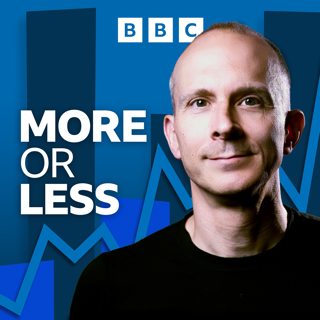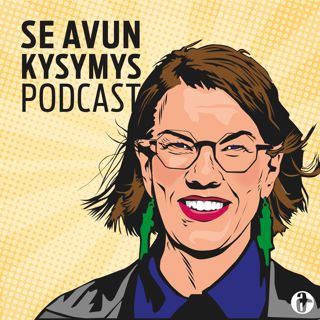
WS MoreOrLess: Kidney Donation
The chance of a successful kidney match between two unrelated people has increased significantly in the past 10 years - why? Ruth Alexander speaks to Professor Anthony Warrens, president of the British Transplantation Society. And we find out for our loyal listener how many individuals he will need to create a new race of people. This programme was first broadcast on the BBC World Service.
1 Marras 20149min

Screening for Ebola
Are airport screenings for Ebola really an effective way of stopping transmission of the disease? And as the United Nations asks for another $1bn (£625m) in aid we take a look at which governments and charities are rallying to the cause and which are not. This programme was first broadcast on the BBC World Service.
25 Loka 20149min

WS MoreOrLess: Big Data
Big data has been enjoying a lot of hype, with promises it will help deliver everything from increased corporate profits to better healthcare. While the potential is certainly there, Tim Harford asks if the hype is blinding us to some basic statistical lessons learned over the past two-hundred years? This programme was first broadcast on the BBC World Service.
18 Loka 20149min

Species in Decline?
The coverage of the Living Planet Index and its claim that species populations have dropped 50% in the last 40 years aroused much suspicion among More Or Less listeners. The team looks at what the figure means and how it was calculated. This programme was first broadcast on the BBC World Service.
11 Loka 20149min

WS MoreOrLess: Will Berlin see a sub-two-hour marathon?
Why is Berlin the place to break the marathon world record and how long will it be before we witness someone run it in less than two hours?
6 Loka 20149min

WS MoreOrLess: How do we calculate the distance to the sun?
Two young listeners emailed the programme to ask how we calculate the distance to the sun. We decided to invite them and their parents to More or Less towers where Andrew Pontzen, an astrophysicist at University College London was on hand to explain the answer. A BBC nature documentary stated that there are 14,000 ants to every person on earth, and that were we to weigh all of these ants they would weigh the same as all the people. Can this be true? Tim Harford and Hannah Moore investigate with the help of Francis Ratnieks, professor of apiculture at the University of Sussex.
29 Syys 20149min

The Barnett Formula
This week Tim explains the Barnett Formula with a bit of help from Money Box's Paul Lewis. He looks at Ed Balls sleight of hand in his speech to the Labour Party Conference. Is Ed Miliband's promise on NHS funding really worse than the funding increases delivered by Margaret Thatcher? And how do we know how far away is the sun really is?
26 Syys 201428min

WS MoreOrLess: The UK vs Mississippi
Is Britain poorer than every US state, except for Mississippi? Journalist Fraser Nelson calculates that’s the case. Tim Harford speaks to economist Chris Dillow about why he’s right. Late last year BBC Trending referred to Eritrea as ‘tiny’. Listeners complained and the complaint was upheld. More or Less talks to Trending producer Mukul Devichand and asks whether any country can rightly be called ‘tiny’.
22 Syys 20149min





















